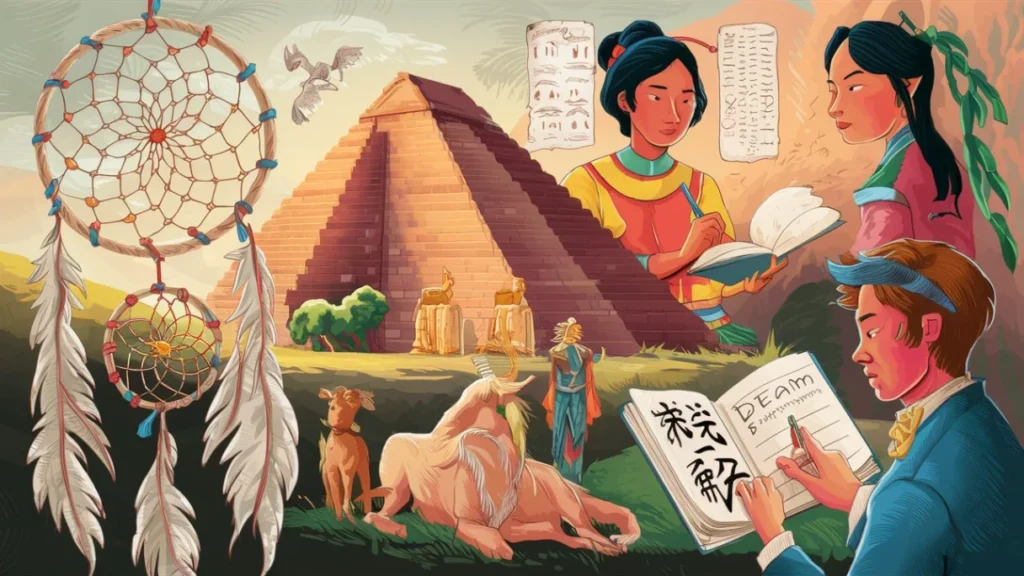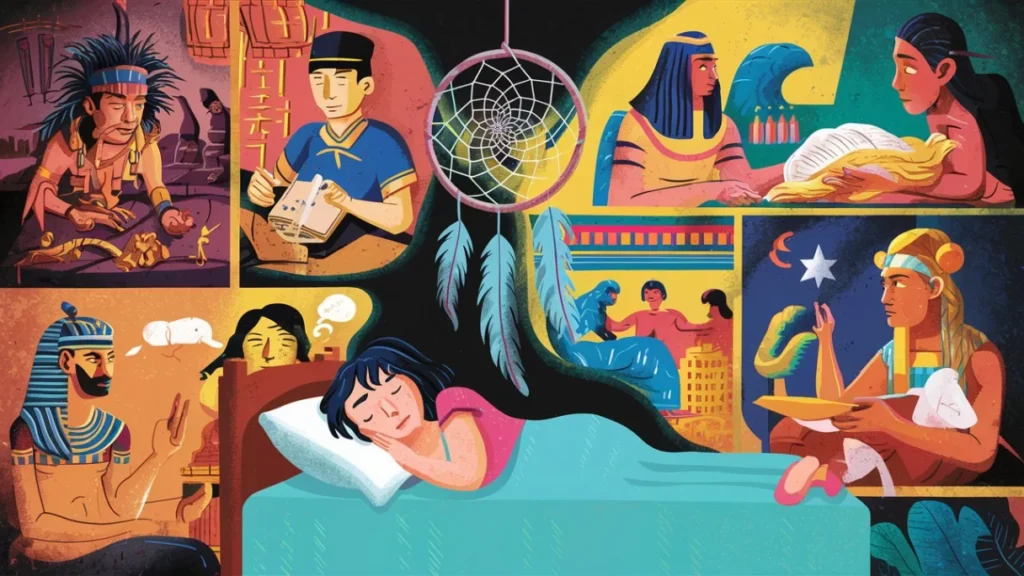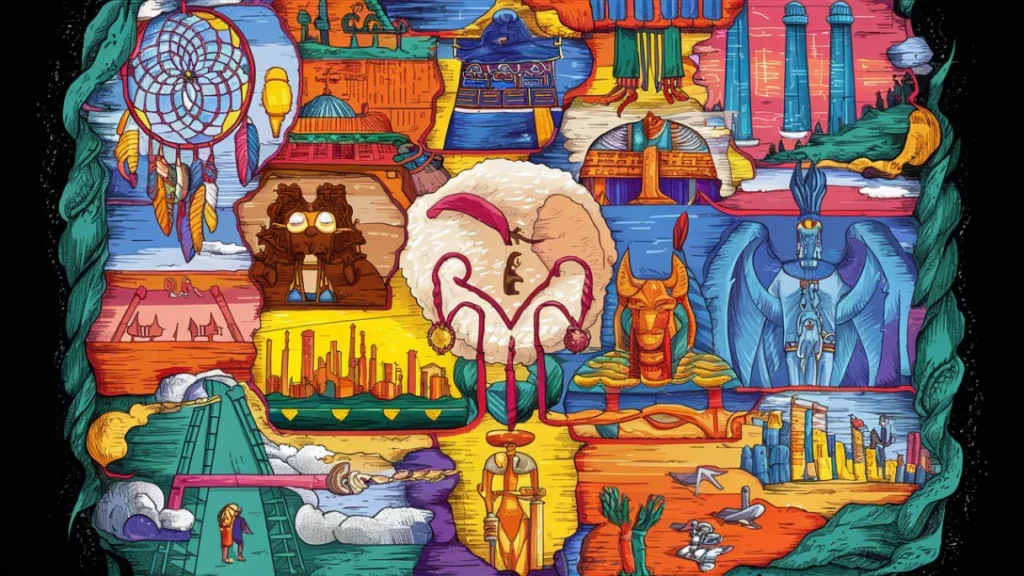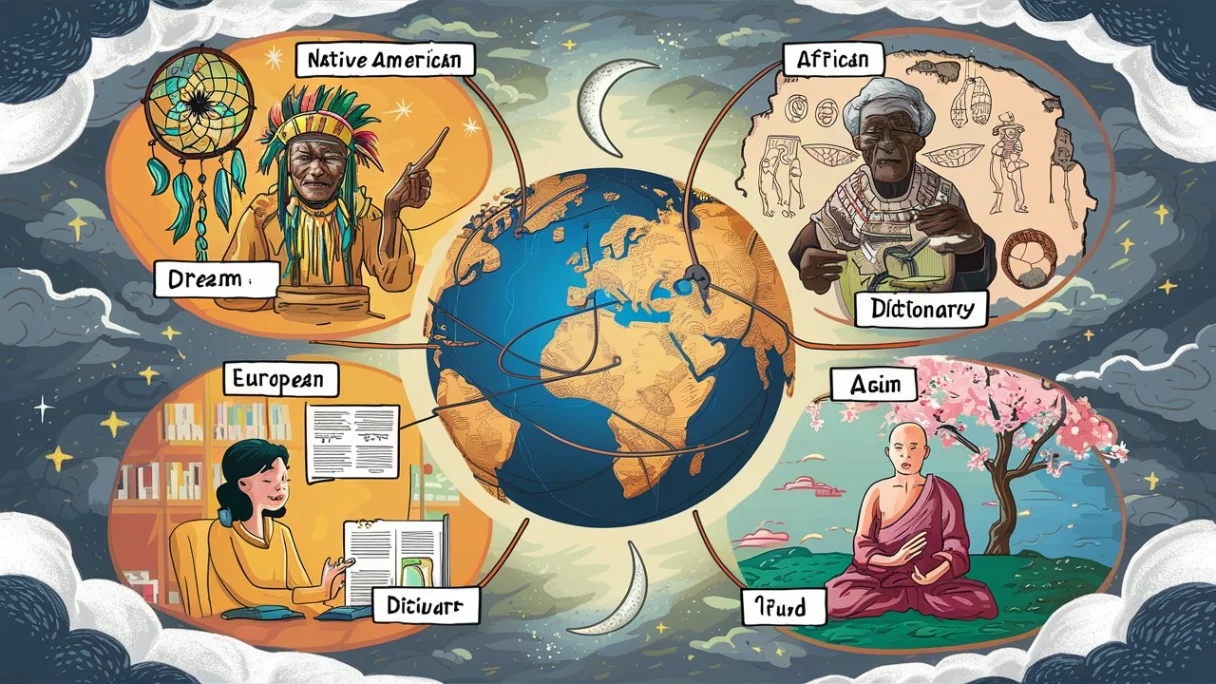Dreams have fascinated humans since ancient times, sparking countless interpretations and beliefs across diverse cultures. From the mystical realms of indigenous tribes to the psychological theories of modern society, dreams continue to captivate our imagination. In this comprehensive guide, we’ll explore how different societies around the world interpret dreams and the cultural significance they hold.
The Universality of Dreams
Dreaming is a universal human experience, transcending geographical boundaries and cultural differences. People from all walks of life, regardless of their background or beliefs, experience dreams during their sleep. This commonality has led to a wide array of interpretations and cultural beliefs surrounding the meaning and significance of dreams.
Indigenous Cultures and Dream Interpretation

Many indigenous cultures place great importance on dreams, viewing them as a bridge between the physical and spiritual worlds. These societies often believe that dreams carry messages from ancestors, deities, or spirit guides, offering guidance, warnings, or prophecies.
Native American Dream Beliefs
In Native American cultures, dreams are considered sacred and are often shared with the community for collective interpretation. Some common beliefs include:
- Dreams are a way to communicate with the spirit world and receive guidance from ancestors.
- Animal spirits in dreams are believed to be powerful guides and protectors.
- Recurring dreams are seen as important messages that require attention and action.
Aboriginal Australian Dreamtime
The Aboriginal people of Australia have a unique concept known as the Dreamtime, which encompasses their spiritual beliefs and cultural practices. In this context, dreams are believed to be:
- A way to connect with the ancestral spirits and the land.
- A source of knowledge and wisdom passed down through generations.
- A means of understanding one’s place in the world and the interconnectedness of all things.
Eastern Philosophical and Religious Perspectives

Eastern philosophies and religions, such as Hinduism, Buddhism, and Taoism, have their own distinct interpretations of dreams and their significance in personal and spiritual growth.
Hinduism and Dream Interpretation
In Hinduism, dreams are seen as a gateway to the divine realm and a means of spiritual awakening. Some key beliefs include:
- Dreams can provide glimpses into past lives and karmic influences.
- Lucid dreaming is considered a spiritual practice for self-realization and enlightenment.
- Certain dreams, such as those featuring deities or sacred symbols, are believed to hold profound spiritual significance.
Buddhism and Dream Yoga
Buddhism places emphasis on the practice of dream yoga, which involves cultivating awareness and clarity within the dream state. The main goals of dream yoga are:
- Recognizing the illusory nature of dreams and, by extension, the waking world.
- Developing lucidity and control within dreams to gain insights and spiritual growth.
- Using dreams as a platform for meditation and self-exploration.
Western Psychological Perspectives

In Western society, dreams have been studied extensively from a psychological perspective, with various theories emerging to explain their significance and meaning.
Freudian Dream Analysis
Sigmund Freud, the father of psychoanalysis, believed that dreams were the manifestation of unconscious desires and repressed emotions. According to Freudian theory:
- Dreams are a way for the unconscious mind to express itself, often through symbolic imagery.
- The content of dreams can reveal hidden desires, fears, and conflicts within the individual.
- Dream interpretation requires exploring the latent content beneath the manifest content of the dream.
Jungian Dream Interpretation
Carl Jung, another influential psychologist, viewed dreams as a means of personal growth and self-discovery. Jungian dream interpretation emphasizes:
- The collective unconscious and archetypal symbols in dreams.
- The compensatory nature of dreams, balancing the conscious and unconscious aspects of the psyche.
- The importance of personal associations and emotions in interpreting dream symbolism.
Contemporary Dream Research and Science
In recent years, scientific research has shed new light on the nature and purpose of dreams, offering insights into their biological and cognitive underpinnings.
The Role of REM Sleep
Studies have shown that dreams primarily occur during the Rapid Eye Movement (REM) stage of sleep. During this stage:
- Brain activity resembles that of wakefulness, with increased activity in regions associated with emotion, memory, and visual processing.
- The body experiences temporary paralysis, preventing physical acting out of dreams.
- Dreams tend to be more vivid, bizarre, and emotionally charged compared to non-REM dreams.
Dream Recall and Memory Consolidation
Research suggests that dreams play a role in memory consolidation and emotional processing. Some key findings include:
- Dreams often incorporate elements of recent experiences and emotions, helping to process and integrate them into long-term memory.
- Individuals who regularly recall their dreams tend to have better overall memory and problem-solving skills.
- Certain techniques, such as keeping a dream journal, can enhance dream recall and facilitate self-reflection.
Interpreting Your Dreams
While cultural beliefs and psychological theories offer valuable perspectives on dream interpretation, ultimately, the meaning of your dreams is personal and subjective. To gain insights from your own dreams, consider the following:
- Keep a dream journal: Record your dreams upon waking, including as many details as possible.
- Identify recurring themes or symbols: Look for patterns or repetitive elements in your dreams.
- Reflect on your emotions: Pay attention to the feelings and emotions you experience within the dream and upon waking.
- Consider personal associations: Think about how the dream content relates to your waking life experiences, relationships, and challenges.
- Seek guidance if needed: If you struggle with disturbing or recurrent dreams, consider seeking the help of a qualified therapist or dream analyst.
Conclusion
Dreams have captivated human imagination for centuries, giving rise to a rich tapestry of cultural beliefs and interpretations. From the spiritual realms of indigenous cultures to the psychological theories of the Western world, dreams continue to hold a significant place in our understanding of the human experience.
Whether you view dreams as messages from the divine, manifestations of the unconscious mind, or a fascinating product of our brain’s activity during sleep, exploring the world of dreams can offer valuable insights into your own psyche and the collective human experience.
Remember, while cultural beliefs and psychological theories provide a framework for understanding dreams, the ultimate meaning of your dreams is personal and unique to you. By cultivating a deeper awareness of your own dream life, you can tap into a rich source of self-discovery, creativity, and personal growth.
Sweet dreams!

